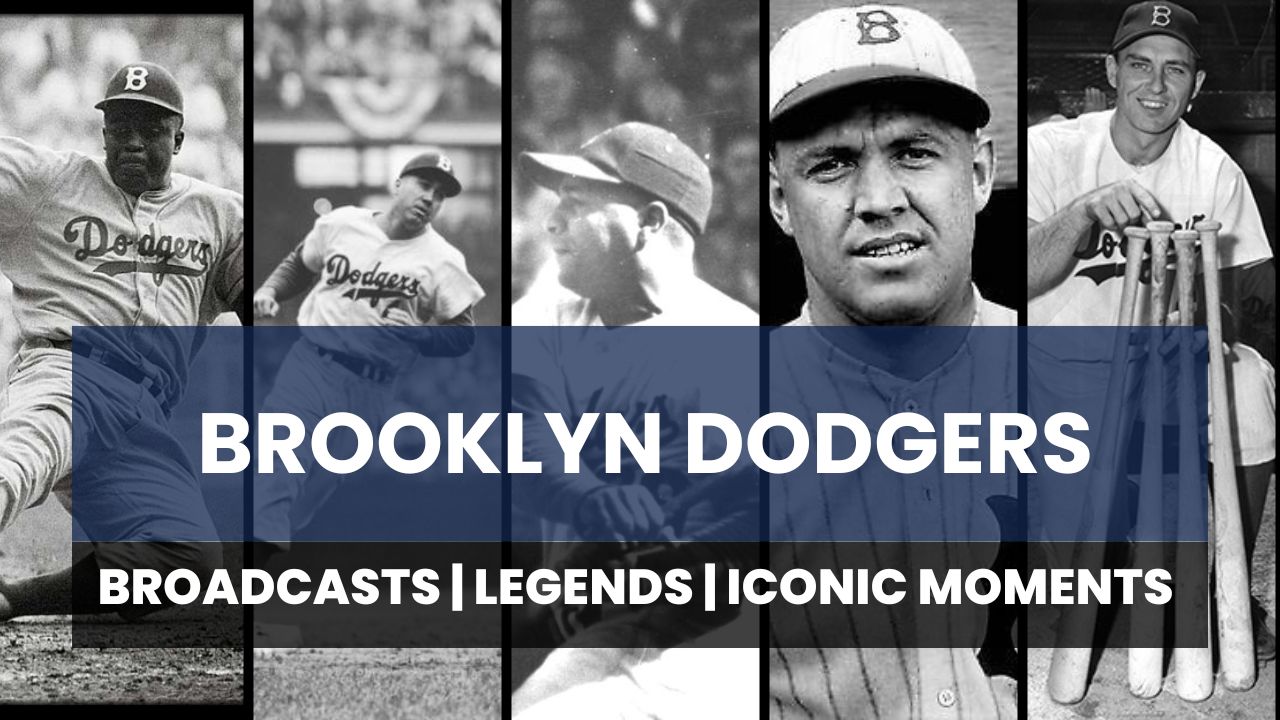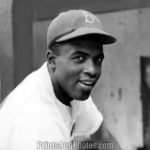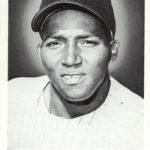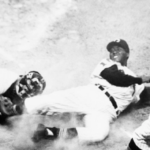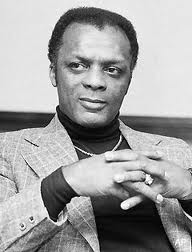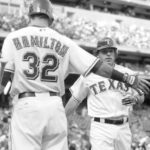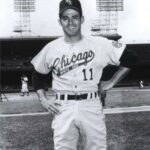Vic Power Stats & Facts
Vic Power Essentials
Positions: Firstbase
Bats: R Throws: R
Height: 6′ Weight: 186
Born: Tuesday, November 01, 1927 in Arecibo, P.R.
Died: November 29, 2005 in Bayamon, P.R.
Debut: April 13, 1954
Last Game: October 3, 1965
Full Name: Victor Pellot Power
Nine Players Who Debuted in 1954
Hank Aaron
Harmon Killebrew
Bill Skowron
Vic Power
Camilo Pascual
Ryne Duren
Wally Moon
Don Zimmer
Frank Lary
All-Time Teammate Team
Coming Soon
Notable Events and Chronology
Biography
The 1954 season had unfolded like a Greek epic. The baseball gods seemed to be against the Philadelphia Athletics all season. The great warrior Gus Zernial had fallen at mid-season and was carried from the battlefield. Legions of foreign soldiers entered Connie Mack Stadium in Trojan horses, only to plunder Eddie Joost’s brigade. Finally, in October, the newspapers told the tale of how the beloved A’s had been sold and were moving to Kansas City.
In 1954, Philadelphia Athletics’ rookie Vic Power was just beginning his major league odyssey. It was a journey that sometimes may have been too much for even Homer’s Odysseus to bear. Off of the field, Victor’s sense of fairness and manhood were constantly tested and sometimes his life was put at risk. On the field, however, Victor provided us with one of the most entertaining and skilled performances by any first baseman to ever play the game.
In Danny Peary’s book “We Played the Game” (Hyperion, 1994), 65 players from 1947 to 1964 (including Joe DeMaestri, Eddie Joost and Gus Zernial) tell their baseball stories in their own words. Vic Power’s story is one of the most open and insightful into both the man and the player.
Victor Felipe Pellot Pove (Power) was born in Arecibo, Puerto Rico on November 1, 1927. Victor was Latino and black and grew up on an island where races easily intermingled and racism existed somewhere else. Like many in his homeland, he grew up poor. His father died when Victor was 13, and he became the provider in his family. Baseball became his passport to a world of financial and cultural opportunity. It would also provide him exposure to a oneeyed Cyclops called racism. How he handled it would be a test of his manhood.
In 1950, the New York Yankees were the first organization to recognize Vic Power’s talents. After purchasing him from Drummondville, Canada in the Provincial League, the Yankees sent Vic first to Syracuse in 1951 and then to the Kansas City Blues in 1952. At Kansas City he hit a solid .331 with 109 RBI, and he was clearly one of the top players, white or black, in the Yankees minor league organization. He was on the threshold of being the first black player on the Yankees. Vic waited for the call that never came.
The Yankees had apparently noticed that Vic Power was not the passive, non-confrontational player they were looking for. Then, as throughout his career, Vic would never look for a fight but neither would he back away from one. If he was knocked down because the previous player had hit a home run, he would charge the mound. That was the way he had learned the game. Nor would he stay hidden in public. He enjoyed the nightlife and openly associated with people of all races as he had in Puerto Rico. Even after he hit .349 for Kansas City in 1953, the Yankees still hesitated. On December 16, 1953, in a multiple player deal, Vic was traded to the Philadelphia Athletics.
Being black and not from the United States gave Victor a different experience and relatively little in common with most Afro- Americans. Most of the first major league black players had grown up in a culture of racism. They learned to work around it as best they could. Victor saw himself as a Latino. In Puerto Rico, shades of skin color had meant very little. Throughout his playing days he befriended people of all colors. Vic selected friends based on common interests. Those interests alone made Vic unique as a baseball player. He enjoyed jazz and classical music, eating at nice restaurants, art museums and he was known for being a good dresser. He also became known for his sense of humor. Although Bob Trice (the first black player in A’s history) became his roommate, Elmer Valo became his best friend on the A’s. Elmer taught Victor English and they both cracked each other up with their humor.
When Vic reported to Florida for the A’s spring training camp in 1954, the 26 year old rookie was unprepared for the “For Whites Only” signs that were posted everywhere he went. He was not allowed to stay in the team’s hotel. No taxi would give him a ride. He was not even allowed to drink from the water fountain located in the Athletics dugout. While Vic became appalled at the way black people were treated in the South, he never let it get the best of him. While sitting down at a southern restaurant Vic was informed by the waitress that they did not serve “Negroes”. Vic told her not to worry; he didn’t eat “Negroes” and just wanted rice and beans.
When the 1954 season started in April, expectations were high that Vic Power would be a candidate for Rookie of the Year. Vic, however, was not sparred the 1954 curse. He hit just .255. Due to a lack of outfielders, manager Eddie Joost had Vic play centerfield. Vic wanted to play first base. No one was happy, not Power, not Joost, not Zernial, not the Mack family and not the A’s faithful. When the team was sold to Arnold Johnson, it was as though the god Poseidon had mercifully sunk the Athletics ship.
In April 1955 the A’s shipwrecked sailors washed up on the shores of Kansas City. The A’s players became bewitched by the siren-like Kansas City fans who showered the players with sweet adoration and sang their praises (and in time would turn against them). Over 1,300,000 fans came out to see the Kansas City Athletics in 1955. Warrior Gus Zernial mended and cranked out 30 home runs while finishing second to Mickey Mantle in the American League. Elmer Valo hit an amazing .364 while collecting 103 hits, but he didn’t have enough at-bats to qualify for the batting title. It was Vic Power, however, who became the toast of the town. While getting 190 hits (third in the league) he hit .319, finishing second to Al Kaline.
Vic openly celebrated his prosperity, much to the chagrin of the Kansas City power elite. It was said that you could seldom find a policeman in Kansas City as they were all taking turns pulling over Vic Power and his new Cadillac convertible. They were trying to give Vic the message that it was not appropriate for black people to drive such a nice car or to openly associate with Caucasians, especially females. When Victor brought his light skinned bride from Puerto Rico to Kansas City, the police pulled them over, this time interrogating his wife, who did not understand a word of English.
In one of the worst incidents of racism in baseball history, the A’s team bus was pulled over by several squad cars in Florida during Spring Training. A few miles back at a gas station, Vic had a disagreement with the attendant over a deposit on a Coke bottle. Everyone was ordered out of the bus and Vic was being arrested when the players interceded.
After the players posted “bail” one of the officers stated that Power probably would have been lynched had he been arrested. Vic Power did not try to stir up controversy, he just lived life as he always did. He created controversy on the diamond when, as first baseman for the Athletics in 1955, he became the first player to catch the ball with one hand. On top of that, he caught the ball in a sweeping motion. He was immediately labeled a showboat. Further, he played nowhere near first base. Joe DeMaestri, the A’s shortstop, and Victor had an agreement. Joe was to fire the ball to the empty first base and Vic guaranteed Joe that he would get there to field it. He was always there. With his flair and skill, Vic became one of the best and certainly the most entertaining first basemen in the history of the game. He would win seven straight gold glove awards from 1958 through 1964.
Vic would play with the Athletics until mid season 1958 when he was traded to the Cleveland Indians in a deal that brought Roger Maris to the Athletics. He would play seven more years with Cleveland, Minnesota, the Phillies in 1964 and the California Angles before retiring after the 1965 season at 38 years of age. During his 12-year career he played in four All Star games (he represented the A’s in 1955 and 1956), had 1,716 hits and a .284 lifetime batting average. His voyage complete, he returned home to Puerto Rico where he managed, scouted and put on baseball clinics.
During his baseball career he met the likes of President John F. Kennedy, Fidel Castro, Ty Cobb, Connie Mack, and played against many of the best players in post-war baseball. For Vic Power, his baseball odyssey had been full of surprises, some good and some bad. He had several surprises up his own sleeve to show the baseball world over his career.
On August 14, 1958, while playing with the Indians, he surprised the Tigers by stealing home twice, first to tie the game in the 8th inning and second to win it in the 10th. They were two of his three steals that year.
Vic Power surprised the baseball world with his glove and with his courage as well as with his humor and style. Whatever curve ball the baseball gods had thrown him, Vic adjusted, then did it his way.
This biography is also found at The Philadelphia Historical Society
@ET-DC@eyJkeW5hbWljIjp0cnVlLCJjb250ZW50IjoicG9zdF90YWdzIiwic2V0dGluZ3MiOnsiYmVmb3JlIjoiTGVhcm4gTW9yZSBhYm91dCB0aGUgdGVhbXMsIHBsYXllcnMsIGJhbGwgcGFya3MgYW5kIGV2ZW50cyB0aGF0IGhhcHBlbmVkIG9uIHRoaXMgZGF0ZSBpbiBoaXN0b3J5IC0gLSAtIC0gLSAtIC0gIiwiYWZ0ZXIiOiIiLCJsaW5rX3RvX3Rlcm1fcGFnZSI6Im9uIiwic2VwYXJhdG9yIjoiIHwgIiwiY2F0ZWdvcnlfdHlwZSI6InBvc3RfdGFnIn19@
Factoids, Quotes, Milestones and Odd Facts
Coming soon
Other Resources & Links
Coming Soon
If you would like to add a link or add information for player pages, please contact us here.


